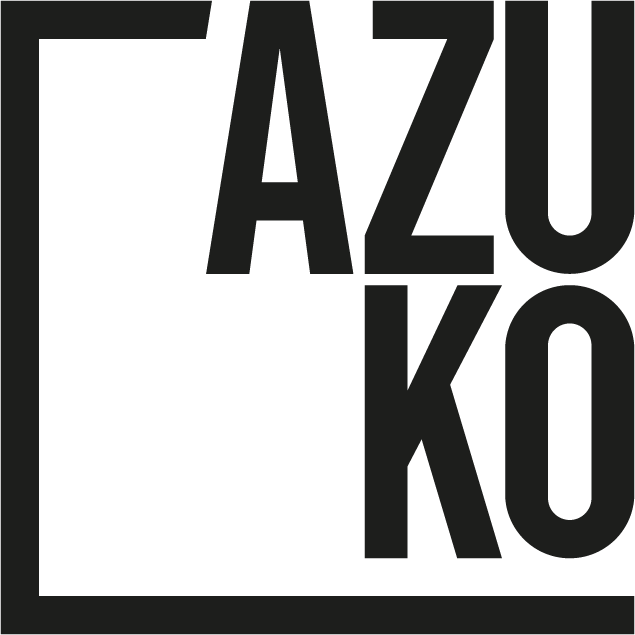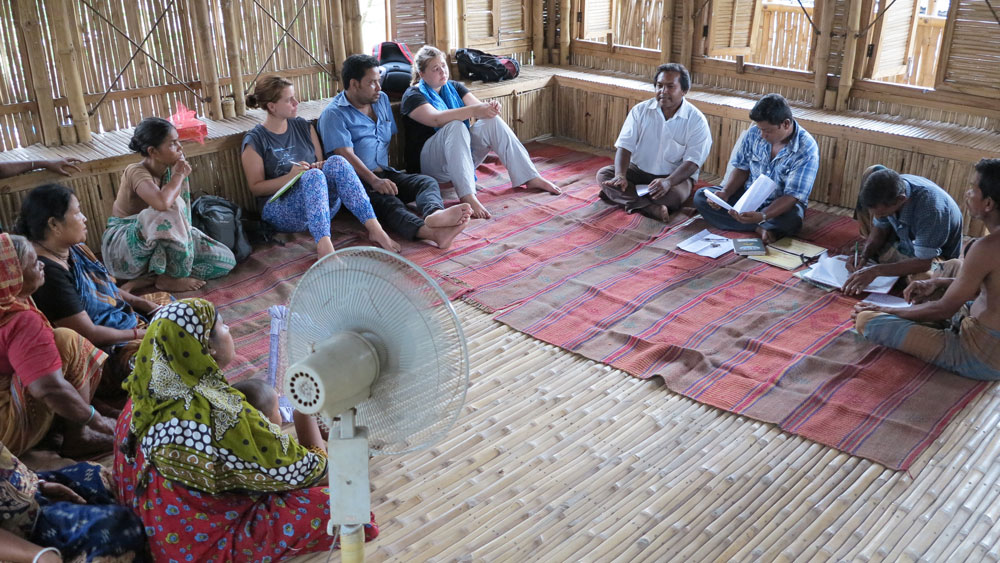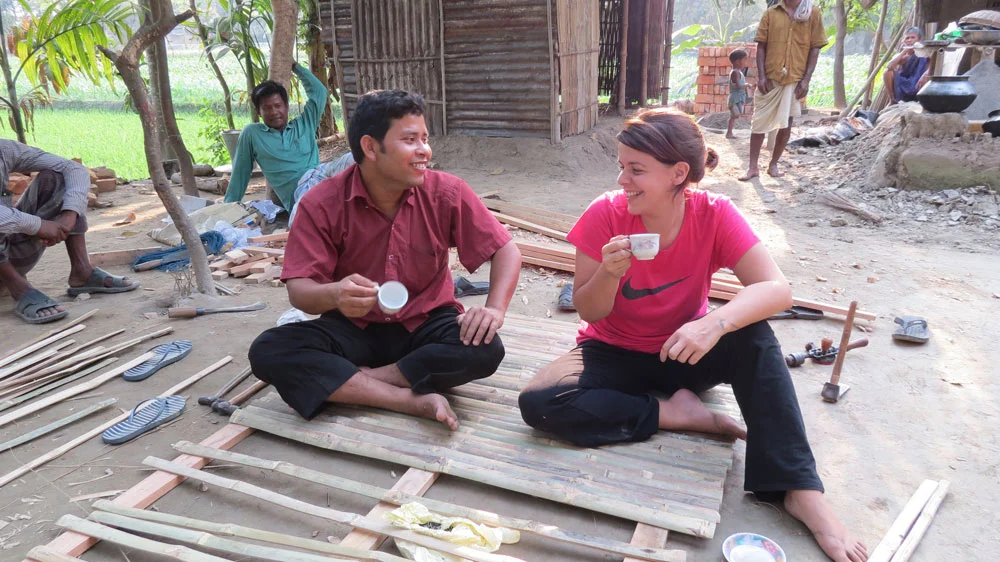We know that investing in local expertise is the best way to create long term impact. We partner with organisations that share our vision and contribute a wealth of local knowledge. We sat down with Apu Roy, from Nirapod Bangladesh Songstha, to find out more about what makes him tick, what drives the organisation and why we are the perfect fit.
Tell us a little bit about yourself...
I'm the Project Manager of Nirapod Bangladesh Songstha. We're a small shelter organisation based in Sundarban, a rural village in northwest Bangladesh. I've worked in development for many years, originally as a health worker at Chetonar Dak, a nonprofit that focuses on health and education across the union. We provided ante-natal checkups and post-natal care to underserved areas.
“At that time we had to go door to door, as there was little awareness of health and nutrition essentials.”
I've been with Nirapod Bangladesh Songstha since it began in 2008, first as part of the construction team and then moving into a full time position managing projects. I'm currently working with AzuKo, leading a range of different projects from slum upgrading to water, sanitation and hygiene works.
When you're not working at Nirapod Bangladesh Songstha, what are you doing?
Many things! I work in our family's fields growing vegetables and rice, and looking after a few animals. I'm a father too - my daughter Totini keeps me on my toes.
What are your roles and responsibilities?
We're a small team, so share many responsibilities. I focus on project related activities such as facilitating workshops, managing teams, monitoring progress and communicating with everyone involved. I also write funding proposals, help out with budgeting, reporting and general day to day administration.
What's your favourite part of the job?
I really enjoy our community workshops and training days. We spread best practice, share ideas and create new solutions. I like learning new things, and undertaking new projects with new communities. Communication is really the key to success.
What is Nirapod Bangladesh Songstha's vision?
We want to improve the lives of some of the poorest people across the region. Our focus is on housing, sanitation and infrastructure, as well as promoting environmental initiatives that encourage proper use of the earth's resources. We want to create comfortable, affordable and sustainable solutions. Although we primarily work with disadvantaged families and communities, we are also keen to promote sustainable practices across the whole of society, from eco-housing to tree planting.
“Do something good for the environment. Do something good for people who do not have the ability or means to do themselves.”
What are some of the biggest issues Bangladesh is facing right now?
Population growth and climate change. Both put huge pressure on our cities. During the hot season, it's extremely hot. During the rainy season there's no rain, and when we need it for our crops it doesn't come. Many people who rely on agriculture for their livelihoods are moving to urban areas in search of work. Many are forced to live in informal settlements, which become denser and harder to serve.
Deforestation is also an issue as well as unsustainable practices such as the use of harmful pesticides, increasing reliance on plastics and poor waste management.
How does Nirapod Bangladesh Songstha fit in?
We're committed to spreading awareness of best practice, from improved construction techniques to living in harmony with the environment.
Do you offer something unique?
There are many organisations and nonprofits in the country that tackle one or more of these issues. Practical Action for example, does some really great work. All our projects have an environmental approach and I think this is what makes us different. Yes, we work with extreme poor, but we also champion sustainable solutions for this group.
Our expertise in local materials, such as bamboo and compressed stabilised earth blocks (CSEBs), is not commonplace in Bangladesh and many people when they first hear about our techniques are surprised. There is a tendency toward fired brick, concrete, glass and steel...
You've worked with AzuKo for many years. Tell us a bit about one of your past projects together...
In 2013, we were asked to join their research project on earthen architecture in areas at risk of flooding. We supported phase 3, which was the design and construction of a prototype house in Nobu para.
We worked with Jo to undertake a needs and assets assessment within the community, in the participatory design of the dwelling, with logistics, sourcing of materials and construction. This was an extremely exciting project to be involved with, particularly with the level of community engagement and contribution. We had a lot of fun on site too... lots of laughter.
“Every day we took tea with the family to discuss issues as a team. Everyone was able to share their thoughts and concerns so that we could solve them together.”
I visited the family recently, they've really settled in and are enjoying the increased space and flexibility. We often showcase this project, and the family are always keen to talk about their experience and show people around.
Why do you enjoy working with AzuKo?
AzuKo does our type of work. We share the same vision. Their approach is needed not just in Bangladesh, but all over the world. I hope we can collaborate for a long long time.





